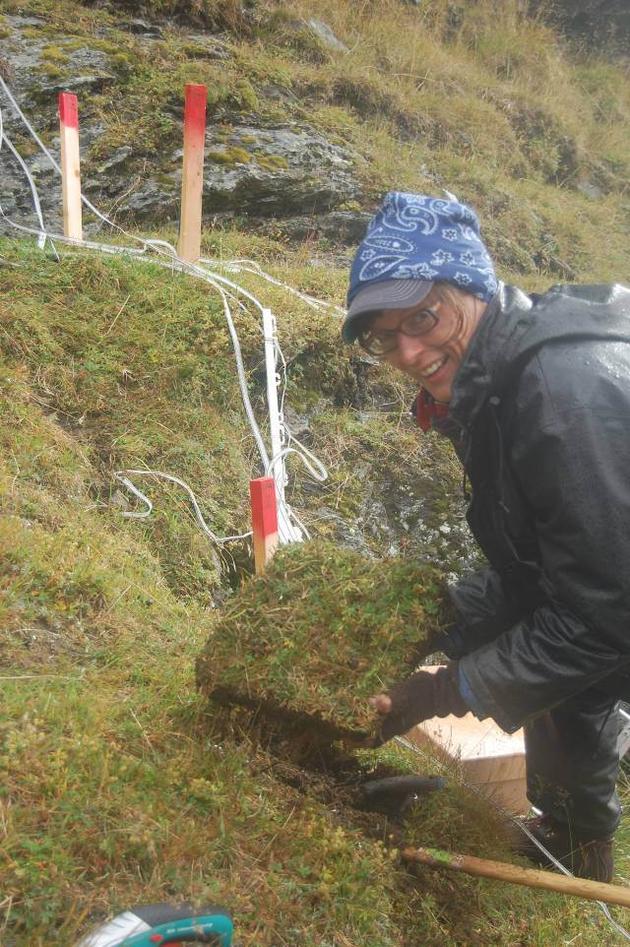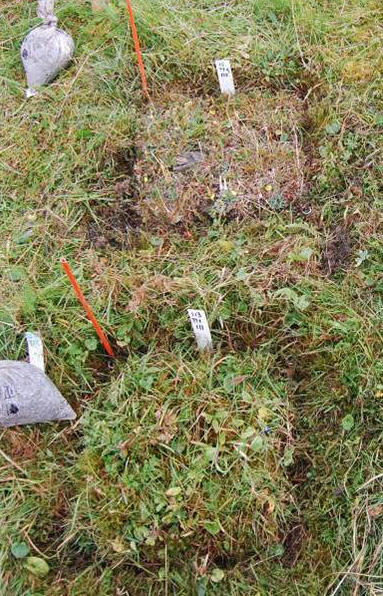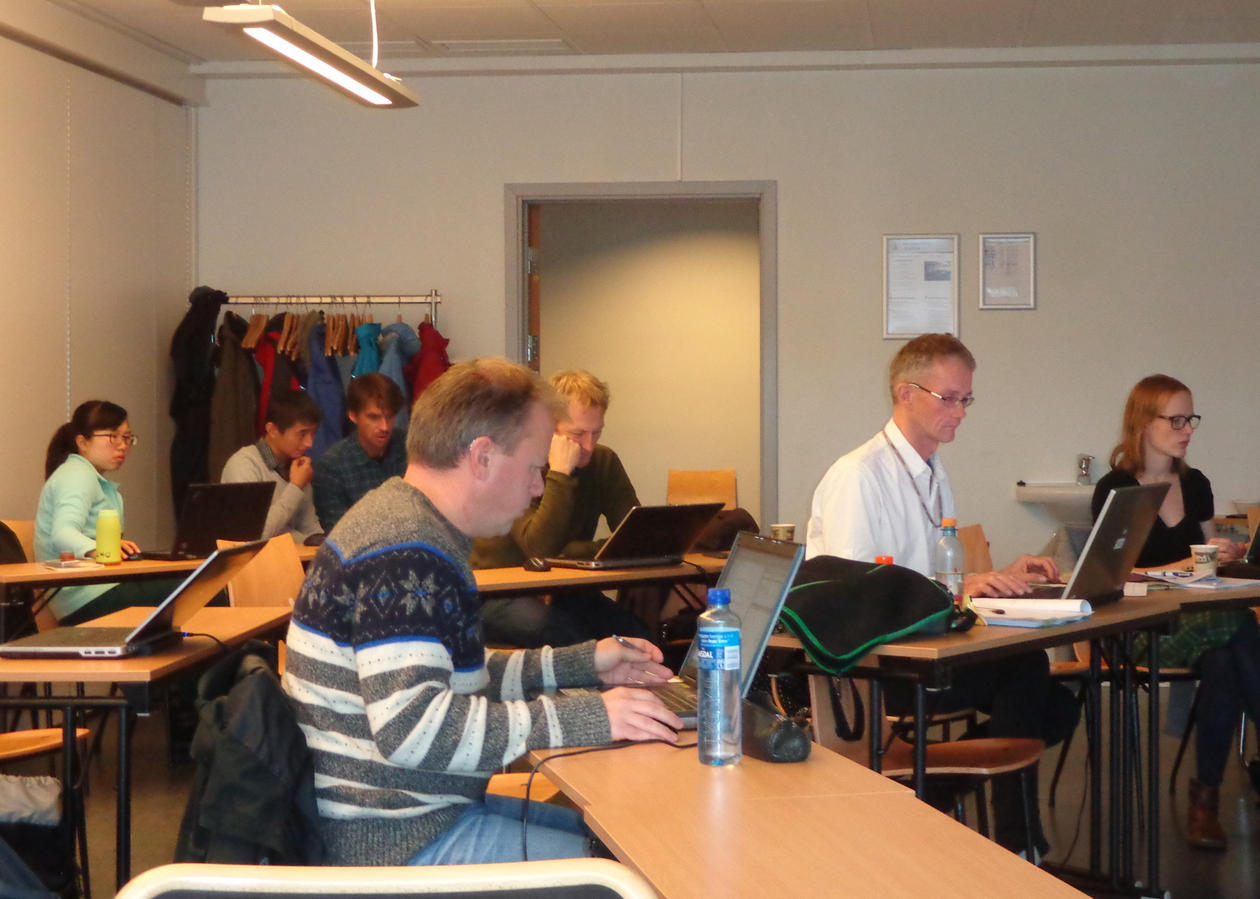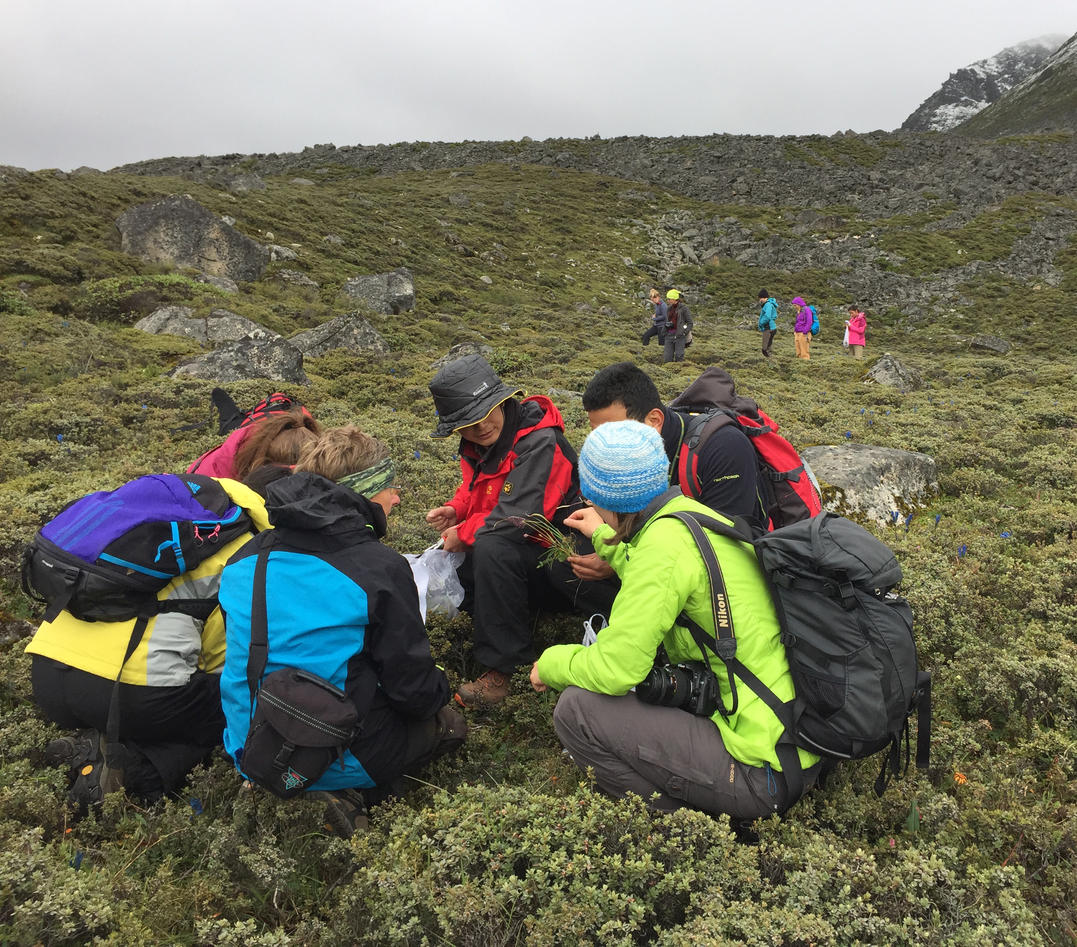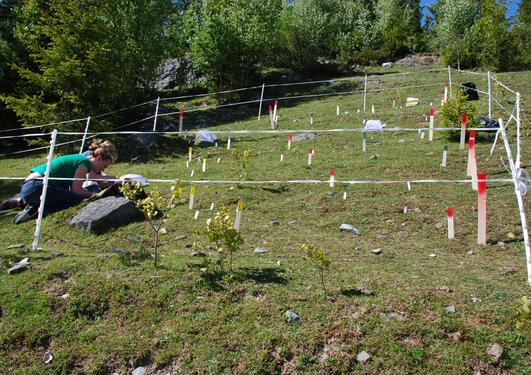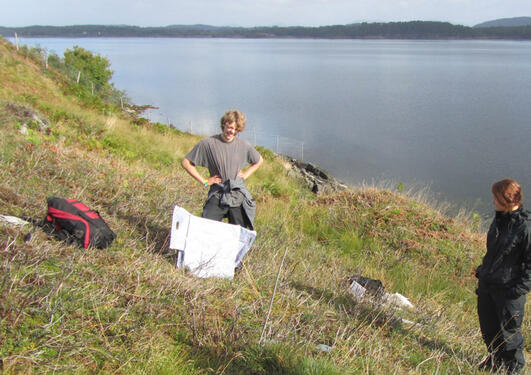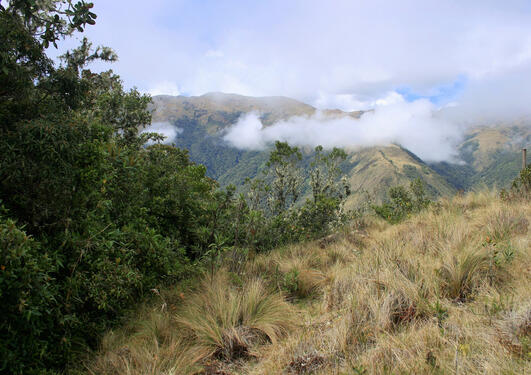TransPlant - TraitTrain
The TransPlant project is part of the Norwegian Research Council UTFORSK programme which aims to strengthen links between higher education and international research collaborations. TraitTrain is a follow-up project and part of the High North Programme from SIU (Norwegian Centre for International Cooperation in Education) with the goal to expand, strengthen and disseminate knowledge about or relevant to the High North.

Main content
The TransPlant project is a cooperation between the University of Bergen (EECRG), NINA, and the Meteorological Institute in Norway along with partners from the Royal Botanic Gardens at Kew (UK), Charles University (Czech Republic), and the University of Michigan (USA) and with the Institute of Mountain Hazards and Environment, Chinese Academy of Science in Chengdu (China). It is a sibling of the SeedClim project established in 2008 by Professor Vigdis Vandvik.
The TransPlant project is developing new methods that integrate observational and experimental approaches across broad-scale climate gradients to explore how climate--and climate change--affects the role of seed recruitment across four levels of organisation from direct physiological effects via demographic responses to population and community dynamics.
The TraitTrain project aims to strengthen research and educational collaboration over ecosystem response to climate change, specifically aimed at comparative studies of High North v. Alpine ecosystem. TraitTrain builds on already established collaboration in climate change impact research and educational development between the partner institutions. These include the University of Bergen and UNIS (University Centre in Svalbard) in Norway and international cooperation with the Institute of Mountain Hazards and Environment, Chinese Academy of Science in Chengdu (China) and the Department of Ecology and Evolutionary Biology at the University of Arizona (USA).
Both projects involve to train biology students in climate change ecology and impacts by offering them targeted courses focussing on central challenges in the discipline, followed by relevant research experience and international exchange opportunities. The aim is to exploit potential for high-impact collaborative research and education offered by similar research interests and experimental setups in High North vs. Alpine study systems, as well as complementary expertise in the collaborative partner institutions. We want to build towards a future research cluster, successful in obtaining collaborative externally funded research and educational projects, involving members of all partner teams. And finally, we promote effective dissemination and communication over climate change impacts on ecosystems in High North and Alpine regions, and its societal relevance through training and hands-on scientific communication experience.
Project partners
Vigdis Vandvik, University of Bergen (Norway), project coordinator
Kari Klanderud, Norwegian University of Life Sciences (Norway)
Richard Telford University of Bergen (Norway)
Ingibjörg Svala Jónsdóttir, The University Centre in Svalbard (Norway)
Wei Deng, Chinese Academy of Sciences (China)
Genxu Wang, Chinese Academy of Sciences (China)
Yan Yang, Chinese Academy of Sciences (China)
Brian Enquist, University of Arizona (USA)
Aud Halbritter, University of Bergen
Vanessa Buzzard, University of Arizona (USA)
Sean Michaletz, University of Arizona (USA)
Brian Maitner, University of Arizona (USA)
Alex Brummer, University of Arizona (USA)
Sun Xiangyang, Chinese Academy of Sciences (China)
Ran Fei, Chinese Academy of Sciences (China)
Haijun Cui, Chinese Academy of Sciences (China)
Francesca Jaroszynska, University of Bergen (Norway)
Inge Althuizen, University of Bergen (Norway)
Master students:
Ragnhild Gya, (2017) The role of intraspecific variability in driving community trait shifts along temperature and precipitation gradients in alpine and boreal semi-natural grasslands. URL
Jesslyn Tjendra, (2018) Shifts in soil prokaryotic communities of boreal and alpine semi-natural grasslands along temperature and precipitation gradients: An investigation into the effects of graminoid removal. URL
William Garcia, Limited homeothermy hypothesis
Up-coming courses
6. Plant functional traits 5: 9-22 March 2020, Chile
Plant functional traits of, amongst others, cushion plants at high elevations in Valle Nevado, Chilean Andes.
Organisers: V. Vandvik (University of Bergen), B. Enquist (University of Arizona), and L. Cavieres (University of Concepcion)
Previous courses
1. Integral projection models: 6-10 October 2014, Bergen
This workshop had the goal to teach basic and advanced constructions of integral project models (IPMs) and how to analyse them.
Organisers: J. Töpper (Univeristy Bergen), O. Skarpaas (NINA) and E. Jongejans (Radboud University in Nijmegen)
2. Plant traits in the Gongga Mountains: 17-31 August 2015, China
The Plant Trait Course was designed to offer hands-on, field based exploration of plant functional traits, along with experience in the usage of plant traits data in climate change research, ecosystems ecology and phylogenetic analyses.
Organisers: V. Vandvik, A. Halbritter (University of Bergen), B. Enquist and V. Buzzard (University of Arizona), Y. Yang (Institute of Mountain Hazards and Environment, Chinese Academy of Science in Chengdu China)
3. Plant functional traits in the Gongga Mountains: 8-18 August 2016, China
植物功能性状课程2
The Plant Functional Trait Course 2 was designed to offer hands-on, field based exploration of plant functional traits, along with experience in the usage of plant traits data in climate change research and ecosystems ecology
4. Plant funtional traits 3: 12-23 March 2018, Peru
Introduction to trait-based ecology with an emphasis on data collection, data management, and computational and statistical skills.
Organisers: V. Vandvik (University of Bergen) and B. Enquist (University of Arizona)
5. Plant functional traits 4: 16-27 July 2018, Svalbard
TraitTrain4 addressed several core scientific questions with an emphasis on the key skills of: (i) collecting original data in the field, (ii) developing data management skills; (iii) developing computational and statistical skills; and (iv) generating data summaries and basic hypothesis tests. Students were given hands-on instruction in the theory and methods of ecophysiology, community ecology, population biology, and computational biology.
Organisers: V. Vandvik (University of Bergen) and B. Enquist (University of Arizona)
